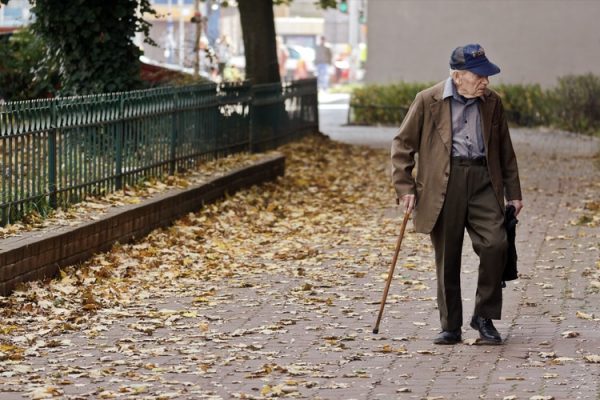Table of Content
Nursing home elopement, also called “wandering,” refers to a resident leaving the facility without notice to staff members. Yes, nursing home residents can suffer from post-traumatic stress disorder as a result of nursing home abuse. Understanding PTSD PTSD is a disorder that may develop after a person witnesses or lives through a shocking, terrifying, or dangerous event.
If your elderly loved one is in a nursing home, make sure to ask how their staff recognizes elopement risks, and how the staff monitors their residents. If a nursing home resident suffers from dementia, Alzheimer’s disease, or other mental or emotional conditions, they may not understand that they must stay at the nursing home and attempt to leave. They may feel a sudden urge to visit a friend, feed a pet they had as a child, or get back to a former place of employment. Any resident that has a mental or emotional condition that would prevent them from understanding that they should remain on the premises should be on an enhanced watch by the nursing home staff.
Elopement: Is it Nursing Home Neglect?
According to Alzheimers.About.com, wandering occurs for up to 60% of patients with dementia. Thus, it is important for nursing home facilities to take necessary measures to ensure the safety and security of the patients and to keep them from leaving the facilities too easily without supervision. Proper staffing of security personnel can help prevent most cases of elopement and may even prevent serious injuries and even death. One of the main reasons families turn to nursing homes to care for their loved ones is safety. Elderly people with dementia or Alzheimer’s often cannot appreciate danger, so they may wander or leave the facility unsupervised and unnoticed.
It is important that nursing home administrators understand the range of influences that determine total cost of ownership and other factors as they choose what elopement security system to install. In addition to the tests, staff members in nursing homes also need to be properly trained to deal with elopement and security measures. Staff members also need to remain vigilant to ensure patients do not leave the facilities without a proper exit procedure.
Difference Between Wandering and Elopement
A patient’s family might sue your facility if their loved one was harmed during elopement. This is why it’s recommended for your nursing home to have this policy to be protected from elopement claims, which are often covered by General Liability Insurance. In California and New York, Topol said, hospitalizations for seniors with COVID-19 have already surpassed those during spring and summer omicron waves.
When elopement occurs, it is highly likely the resident has suffered from nursing home neglect. It’s imperative that health care professionals ask the right questions regarding a resident’s behavioral history to get a good sense of their patterns. Those who did either or both are at a much higher risk of elopement because they won’t have access to alcohol or tobacco in a supervised health care setting, but may attempt to seek either or both out. These activities also are likely to go unreported by the resident or family. The answers can be indicative of emerging cognitive decline, and should be taken seriously. Don’t be fooled by a resident’s record of “no prior incidents.” As memory declines, the risk for wandering increases.
What Is Elopement in Nursing Homes?
One of the best and effective ways to prevent elopement is to build a great relationship between the patient and their nurses. Getting to know each other is critical for nursing homes as it creates a sense of familiarity and will make the experience of staying easier. Having a good rapport with everyone within your facility can eventually motivate them to remain on-site instead of wandering off.

The facility must act to prevent wandering nursing home residents, in Ohio and around the country. Elopement and wanderingincidents are major safety concerns for the elderly residing in a home. Residents with dementia or Alzheimer’s disease have an increased risk of wandering, which can lead to severe injury, anaccidental fall, or unfortunately even death.
How to handle and prevent elopement, including the security measures that should always be in place and what to do if a patient is missing. Many nursing home residents who elope are intentionally leaving because they believe they have something important to do. They may be trying to return to a home that no longer exists, visits a relative who has already passed away, or feed a pet that has been dead for many years. When nursing home staff fails to provide adequate supervision and security, it puts residents at risk.

Studies have shown that in the United States, approximately 35,000 patients wander from their homes each year. It is also estimated that anywhere from 13% to 24% of elderly adults experience instances of elopement or wandering. Elopement is a major life-threatening issue related to caring for an individual with cognitive loss, also known as elder wandering. Elopement can have serious consequences, especially with elderly individuals who are at a greater risk for falls and other accidents.
If the care providers in your loved one’s nursing home or other assisted living facility do not take any of these steps, speak up. Ask them questions, push them to increase their wandering prevention activities, and speak to a nursing home neglect and abuse lawyer to see what your options are for getting better care for your loved one. Elopement is preventable with the proper policies and procedures in place.

You can learn more about your legal rights and how to move forward with a nursing home abuse lawsuit by contacting the attorneys at the Peck Law Group today. It is always a good idea to hire an experienced nursing home abuse and neglect attorney to handle your case, rather than pursuing it on your own. These matters can have complex legal issues that are often outside the scope of anyone who is not an attorney familiar with this area of law. If a nursing home fails to enforce the necessary security measures in place to avoid patients from wandering, the nursing home may be responsible for nursing home neglect.

No comments:
Post a Comment